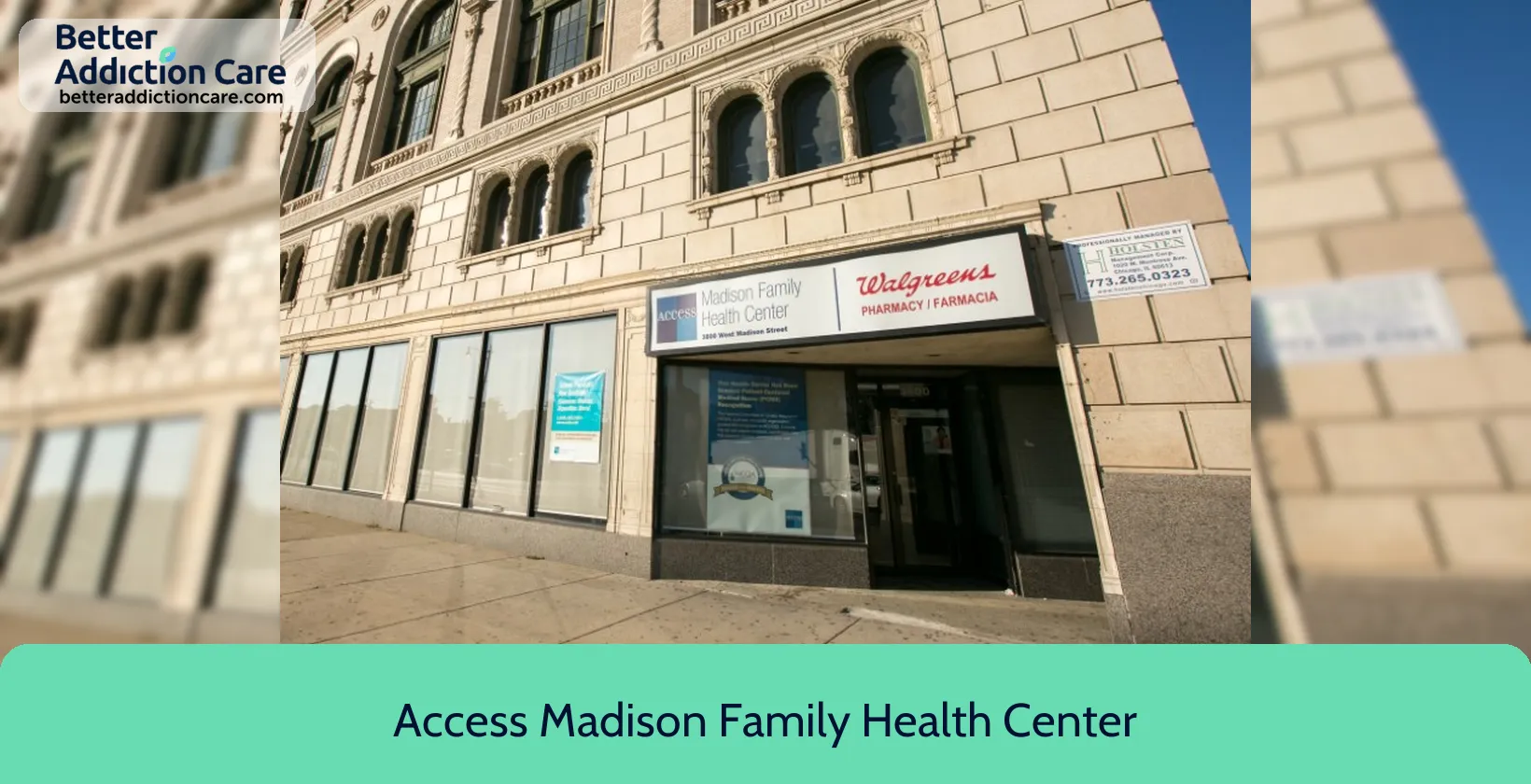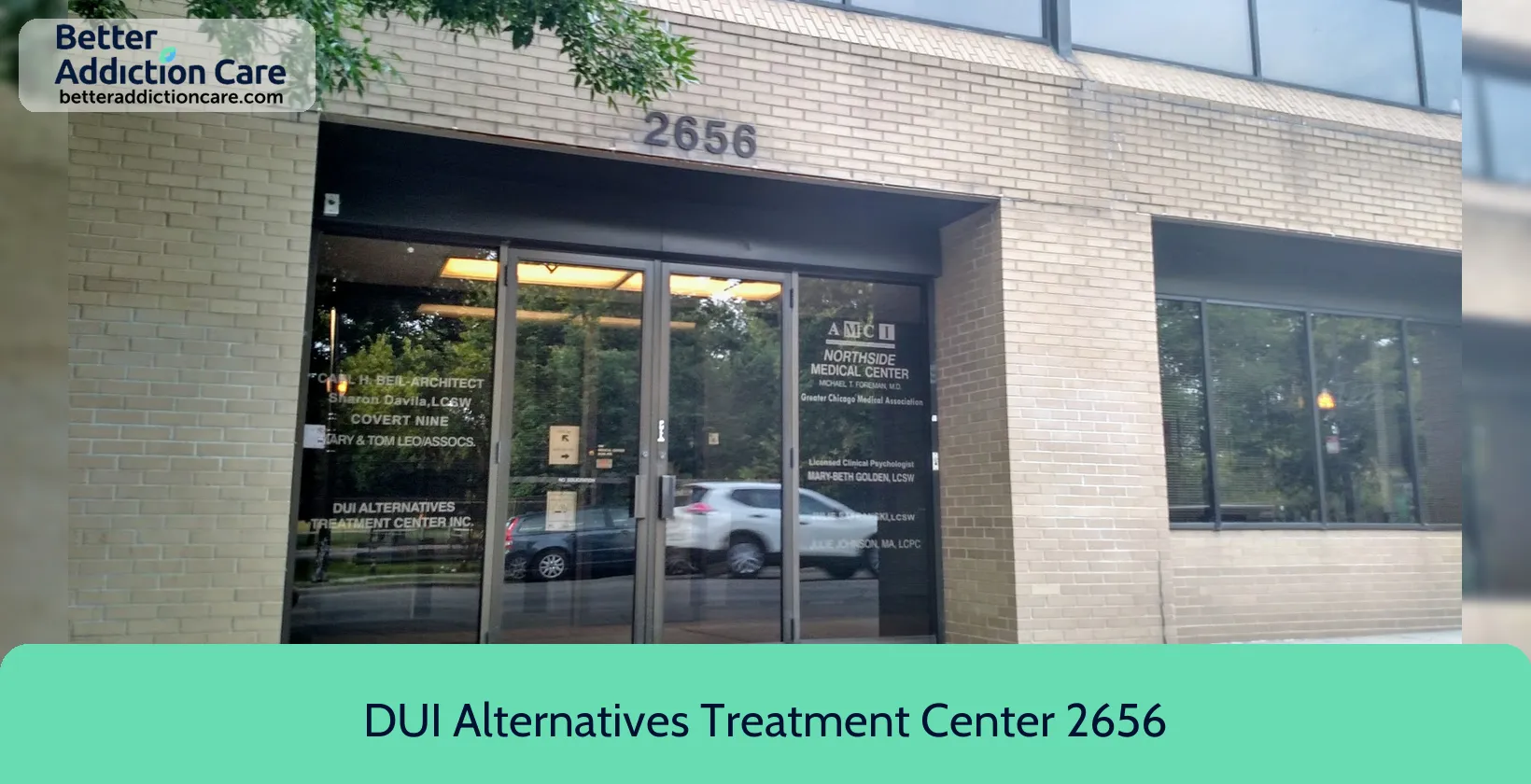Alternatives

Overview
Alternatives is a substance abuse treatment center for people seeking treatment near Cook County. As part of their treatment modalities for recovery, Alternatives provides individual psychotherapy, couples/family therapy, and cognitive behavioral therapy during treatment. Alternatives is located in Chicago, Illinois, accepting cash or self-payment for treatment.
Alternatives at a Glance
Payment Options
- Cash or self-payment
- Medicaid
- State-financed health insurance plan other than Medicaid
- State mental health agency (or equivalent) funds
- State welfare or child and family services funds
Assessments
- Comprehensive mental health assessment
- Comprehensive substance use assessment
- Outreach to persons in the community
- Screening for mental disorders
- Screening for substance use
Age Groups
- Adolescents
- Young adults
- Children/adolescents
- Adults
- Seniors
Ancillary Services
- Intensive case management
- Case management service
- Court-ordered outpatient treatment
- Family psychoeducation
- Suicide prevention services
Highlights About Alternatives
6.86/10
With an overall rating of 6.86/10, this facility has following balanced range of services. Alcohol Rehabilitation: 8.00/10, Drug Rehab and Detox: 6.00/10, Insurance and Payments: 6.00/10, Treatment Options: 7.46/10.-
Alcohol Rehabilitation 8.00
-
Treatment Options 7.46
-
Drug Rehab and Detox 6.00
-
Insurance and Payments 6.00
Accreditations
SAMHSA certification for opioid treatment program (OTP):
Accreditation by the Substance Abuse and Mental Health Services Administration (SAMHSA) for Opioid Treatment Programs (OTPs) signifies that a program has met strict standards for providing high-quality care to individuals with opioid use disorders. It assures patients, families, and communities that the OTP follows evidence-based practices, employs qualified staff and maintains a safe and effective treatment environment. This accreditation reflects the program's commitment to addressing the opioid epidemic and promoting recovery.
State department of health:

State Licenses, issued by government agencies, authorize rehabilitation organizations to legally operate within designated geographical areas. The specific licenses required for operation are typically determined by both the nature of the rehabilitation program provided by the facility and its physical location.
Registration: 000407
Treatment At Alternatives
Treatment Conditions
- Mental health treatment
- Alcoholism
- Substance use treatment
Care Levels
- Outpatient
- Regular outpatient treatment
- Aftercare
Treatment Modalities
- Individual psychotherapy
- Couples/family therapy
- Cognitive behavioral therapy
- Dialectical behavior therapy
- Integrated Mental and Substance Use Disorder treatment
Ancillary Services
Languages
- Spanish
Special Programs
- Clients with co-occurring mental and substance use disorders
- Clients who have experienced trauma
Get Help Now
Common Questions About Alternatives
Contact Information
Other Facilities in Chicago

7.63

7.87

7.19

7.59

7.17

7.17

7.14

6.59
DISCLAIMER: The facility name, logo and brand are the property and registered trademarks of DUI Alternatives Treatment Center 2656 West Montrose Avenue, and are being used for identification and informational purposes only. Use of these names, logos and brands shall not imply endorsement. BetterAddictionCare.com is not affiliated with or sponsored by DUI Alternatives Treatment Center 2656 West Montrose Avenue.
